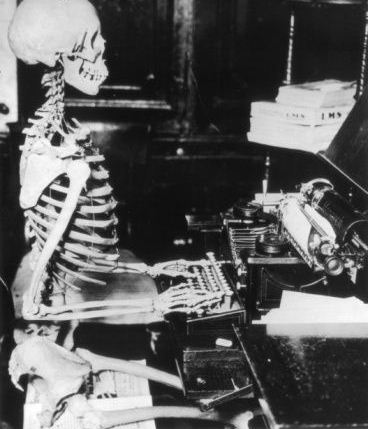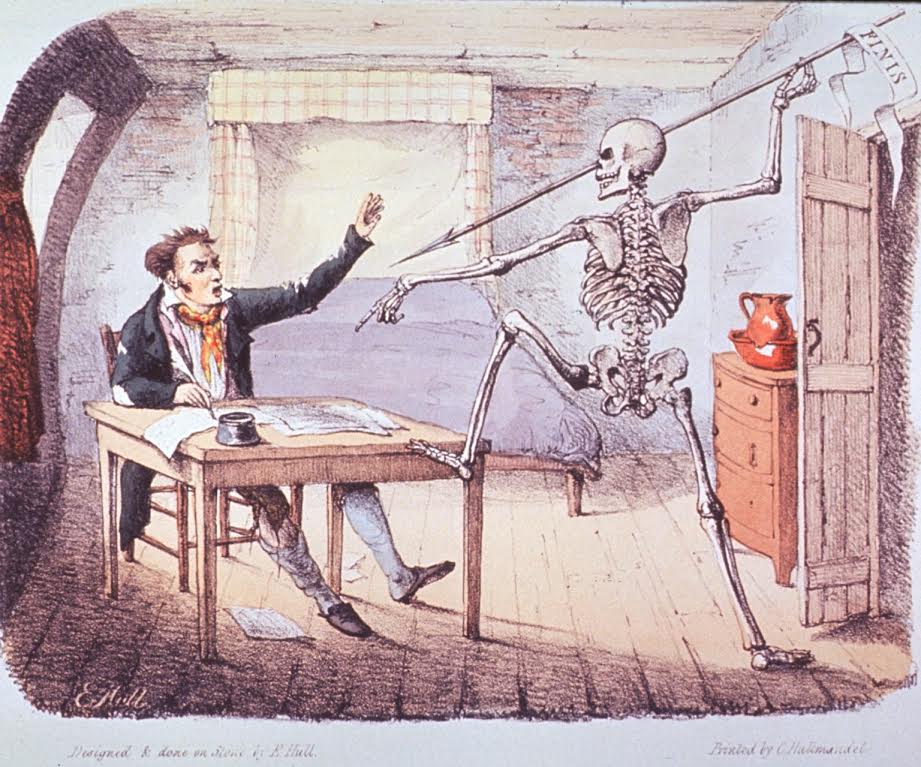He just kept blinking.
His brow was furrowed, his mouth was smiling though his eyes were not, his head was cocked. He chuckled uncomfortably and kept nodding his head – the universal gesture of,”Is that so? I have nothing to add…”
Poor guy, he looked like a Beagle trying to do math.
“Oh well, wow, so…you like that stuff?”
“I wouldn’t do it if I didn’t!” I chirped and sipped my wine.
The bride and groom swished by on their way to take a photo by a big tree.
“That’s some dress…huh?” He asked, eager to change the subject.
“It’s to die for,” I wanted to say.
Though I tend to get an array of responses when people ask me what I do for a living – from genuine enthusiasm to polite avoidance – I feared that I’d broken this fellow.
It had started with the most innocuous of wedding reception questions: “So what do you do?”
For most people it’s a simple question that breaks the proverbial ice and allows strangers to relate to you.
“You sell sweaters? I wear sweaters!”
But when you have a job that deals with aspects of American culture that Americans in general try to avoid or ignore, when someone asks that pesky question, you find yourself in a situation where the questioner has cornered themselves into talking about the unmentionable. (I don’t mean underpants.)
At a recent wedding, largely populated with complete strangers, I found myself answering this question over and over again. While a lot of people were really interested and wanted to talk more, I definitely brought a few conversations to a record-scratching halt.
Usually, when I’m surrounded by strangers, strangers who may or may not share my beliefs, I try to ease them in, test the waters.
“So what do you do?”
“I’m a writer.”
I’m always surprised by how many people leave it at that. But I’m so interesting! Ask me more! If someone told me they were a scientist, I’d definitely ask them what kind of scientist they were. Nonetheless, it’s an easy out for folks who are just being polite. Jerks.
Civilized humans carry on.
“Oh cool, what do you write about?” (Or some variation on this question.)
“I write about death.”
OK, that’s an oversimplification of what I write about and my body of work. If a person is into it, and asks me what I mean, I happily tell them about all the stuff I cover: death in folklore, pet hospice, “Morbid Minute”, death history, and so on. Really, most people can latch onto one of my bullet points and we can have a decent chat.
“Pet hospice? You can do that?”
“Why yes! Here are some websites to check out, new friend. I really like…”
Of course there are some folks who straight up balk.
“WHOA. That’s creepy.”
“Oh, OK. Death…um…It really was a lovely ceremony. You’re married right?”
“Oh God.”
Once or twice people have taken offense.
“What do you know about death? Do you think it’s ‘cool’? You’re so young. Do you really think you have a right to tell suffering people about dying?”
“I don’t have a right. But I’m not…”
When I sense that a person is heading down this path, I try to diffuse the situation with a disclaimer I’ve cobbled together over time.
I tell them that it’s never my goal to glamorize death or tell people how they should or shouldn’t feel about death. I only hope my writing gives people permission to broach the topic. More so, I’m not a mortician, I’m not a death professional, I’m an educated death journalist or memoirist, sharing my knowledge and experiences from a “civilian” perspective so that the conversation is a little less intimidating for other “non-death professionals” like me.
“…I’m not trying to instruct people on death, I’m just trying to make it OK to talk about it.”
Yes, it’s a little weird having a “disclaimer” in my cocktail conversation arsenal, but it does put some folks at ease and allows us to enjoy the cheese plate.
 In the early years, I would try to sort of “talk around” the morbid side of my writing career. I’d talk about covering politics, vaguely about animal stuff, travel, “weird news”. I did this awkward song and dance to make people more comfortable; I didn’t want to be the gal who invited the Grim Reaper to the dinner table.
In the early years, I would try to sort of “talk around” the morbid side of my writing career. I’d talk about covering politics, vaguely about animal stuff, travel, “weird news”. I did this awkward song and dance to make people more comfortable; I didn’t want to be the gal who invited the Grim Reaper to the dinner table.
However, as my career became more focused, and I gained a little recognition for writing about death and deathly things, it became harder and harder to not talk about it.
“Yeah, I write about the whole spectrum of life –“
“– like geriatrics?”
“More like beyond geriatrics?”
I mean at this point in my life, it’s tricky to skirt what I do when I write for something called, Ask a Mortician.
“Oh…they’re lifestyle videos…”
But what I came to think about was, by trying to make my work “palatable” for people, was I tacitly apologizing for it?
Instead of “I’m protecting you from being uncomfortable” was I actually transmitting, “I’m sorry I write about death”?
And I wasn’t and I’m not.
If I was to “practice what I preach,” I couldn’t be apologetic or skittish. If my goal was to start a conversation, I had to make it safe to do so. Being at ease and confident in talking about death, it might give other people permission to be at ease and confident too.
So I cut it out.
Now, if someone asks me what I write about, I feel it’s my responsibility to tell people that I write about death as plainly as I might tell someone that I write about farm equipment. (There was a period of time that I kept getting pitches to cover “the year’s most innovative tractors”, so maybe that was a calling I narrowly missed?)
Of course unabashedly telling people what I do occasionally opens me up to scoldings or awkward situations – like my friend the blinking man. But I’ve come to accept that as part of my job. It’s OK for challenging conversations to start off, well, challenging (or clumsy, or sweaty, or defensive.) But hey, if we’re even talking about death, that’s a start – so I win!
Not that it’s a contest.
(It’s always a contest.)
I know that as death jobs go, mine is sort of the shallow end of the “YOU DO WHAT?” pool. Morticians, crematory workers, medical examiners, any person working directly in the death industry probably has their fair share of “awkward cocktail conversation” stories or encounters of outright contempt. In some ways I wonder if it’s even harder for aspiring death professionals, what with friends and family asking, “Why would you want to do THAT?”
If you work in the funeral industry, have a death-related job or profession, or aspire to be a death professional, what sort of response do you get from people when you “reveal” your job? Have you had positive experiences? Negative?
Has a man at a wedding ever stood blinking at you while he wages an internal battle between “good taste” and being polite to the death girl?
Whatever your experience may be, I’d like to think that for every blinking man there’s a would-be deathling, who sits up when one of us mentions what we do, and says, “Wait…we can talk about that?”
Louise Hung is an American writer living in Japan. You may remember her from xoJane’s Creepy Corner, Global Comment, or from one of her many articles on death, folklore, or cats floating around the Internet. Follow her on Twitter.

